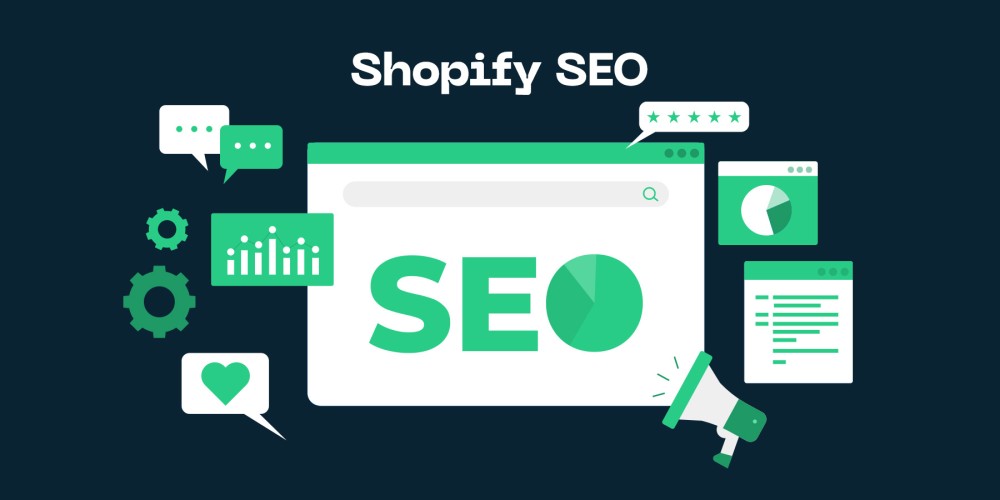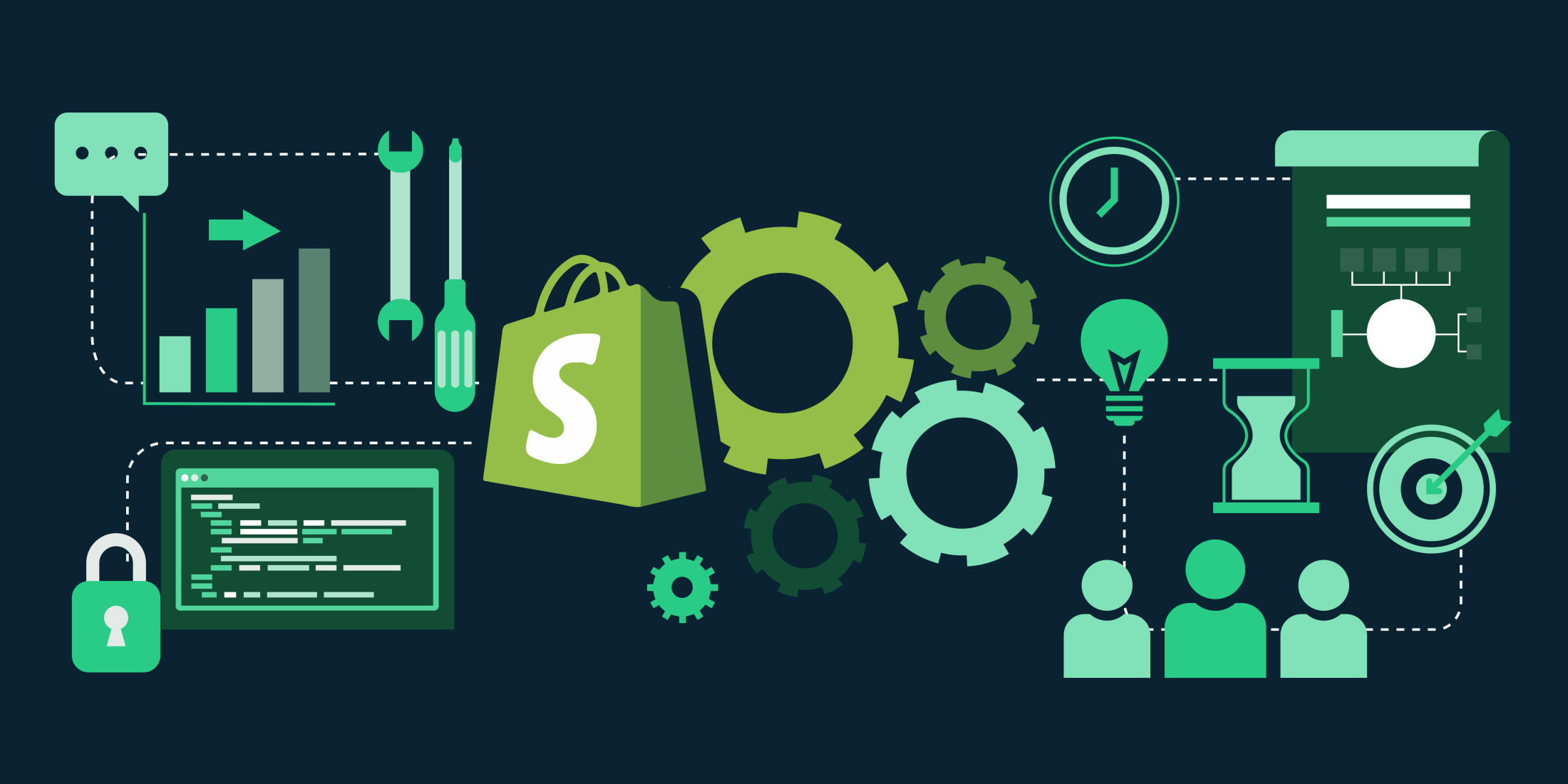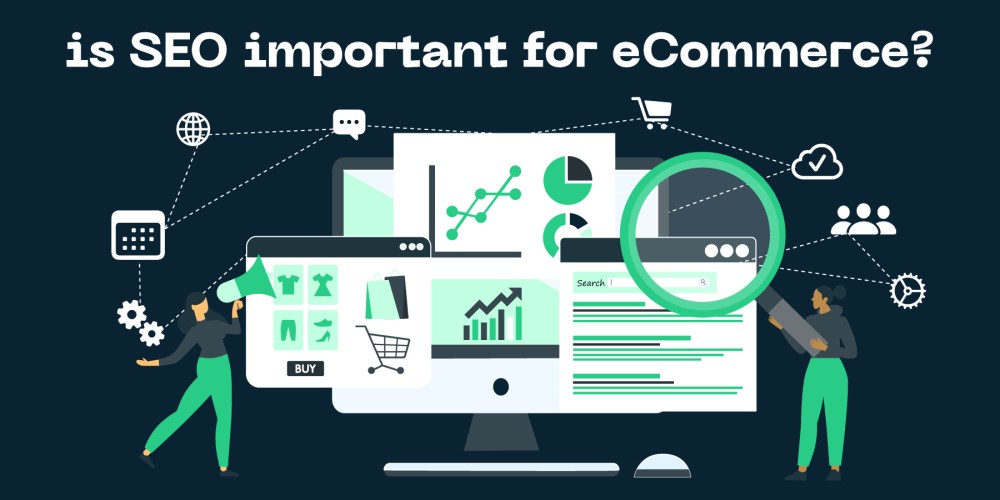Shopify Plus SEO Tips: Improve Your Store in 2025

Key Takeaways
Shopify SEO Essentials: Key Elements to Optimize

At its core, Shopify SEO is all about search engine optimization for your online store to increase its visibility and attract more organic traffic. But what does that mean in practice? Essentially, it’s about making your Shopify store align with how search engines work, and more importantly, matching with the intent of your potential visitors. When your store appears as one of the top results when customers research products online, you’re more likely to attract traffic and drive sales.
Achieving this necessitates mastering the basics of Shopify SEO for your ecommerce site, including:
Site Structure & Navigation
A well-structured site is like a well-organized shop - it’s easy to navigate, easy to understand, and easy to use. For both users and search engines, a clear and effective site structure facilitates navigation, allowing them to find and understand pages easily. Google, for example, uses internal and external links to assess the relationship between pages, indicating the importance of a well-structured site on content ranking.
An unclear site structure can result in content competition within your site, impeding Google’s ability to prioritize your most significant pages. A solution involves planning an internal linking structure and linking to key content within your site.
Customizing URLs & Meta Descriptions
Customization of URLs and meta descriptions is a significant aspect of Shopify SEO, having a profound impact on your store’s visibility on search engine results pages (SERPs). Meta descriptions are the snippets of text that appear below the page title in SERPs and give search engines and users a summary of what the page is about. A well-crafted meta description should integrate target keywords, feature a call-to-action (CTA), and be concise to avoid truncation, ideally staying under 105 characters.
In the same vein, a keyword-rich, succinct, and clear URL slug that communicates the page’s content to search engines and users can enhance SEO and the browsing experience.
Title Tags Optimization
Title tags, a critical component of on-page SEO, significantly influence your search engine rankings. Incorporating target keywords in your title tags is instrumental in boosting visibility in search engine rankings. Title tags and meta descriptions serve as critical tools for communicating what a page is about to both users and search engines, while also enticing clicks from search engine results pages (SERPs).
Implementing target keywords in your title tags communicates the content of your page to search engines, aiding them in correctly indexing your page and presenting it to users searching for the target keyword.
Technical SEO for Shopify: Enhancing Your Store's Performance

Beyond the basics, it’s important to delve into the more technical aspects of SEO. Technical SEO refers to the optimization processes that help search engines to crawl and index your Shopify store more effectively. And while the term ‘technical’ might sound intimidating, don’t worry. With the right tools and guidance, you can master technical SEO and reap the benefits it brings to your Shopify store’s performance.
Some key areas to focus on for technical SEO include the following seo checklist:
By optimizing these technical aspects and utilizing tools like google analytics, you can improve your store’s visibility in search engine results and drive more organic traffic to your site.
This section will address three pivotal areas of technical SEO: optimizing page speed, mobile optimization, and implementing schema markup. These areas can considerably boost your store’s performance, user experience, and search engine rankings.
Page Speed Optimization
Page speed is a crucial factor for both user experience and SEO. A slow-loading website can frustrate visitors, causing them to leave and potentially leading to higher bounce rates. On the other hand, a fast-loading website can enhance user experience, leading to increased visitor engagement, higher conversion rates, and improved Google search rankings.
Shopify stores, in particular, benefit from a global server infrastructure, unlimited bandwidth, and an integrated content delivery network (CDN) provided by Cloudflare, all of which contribute to improved page speed. Despite these advantages, monitoring the impact of installed apps and heavy images on your store’s page speed is critical, as they can substantially hamper web performance if not adequately optimized.
Mobile Optimization
With the increasing prevalence of mobile browsing, ensuring your Shopify store is optimized for mobile devices is more important than ever. Google prioritizes the mobile version of a website for indexing and ranking due to its mobile-first indexing policy, making mobile optimization a crucial factor in your SEO strategy. Utilizing tools like Google Search Console can help you monitor and improve your site’s performance.
A store optimized for mobile not only delivers an exceptional user experience but also enhances your search engine rankings, as search engines acknowledge and reward sites optimized for mobile browsing.
Implementing Schema Markup
Schema markup, or structured data, is another powerful tool in your Shopify SEO arsenal. It’s a form of code that provides detailed information to search engines, enhancing the clarity of your content and potentially leading to improved visibility and a reported 30% bump in click-through rate. Rich snippets, which are enriched with product schema markup, can present details such as price, availability, and review ratings directly in search results, making your listings more attractive to potential customers.
Yet, stores with themes that do not natively support structured data may need to resort to specialized apps or custom coding to implement schema markup.
Keyword Research & Mapping: The Foundation of Shopify SEO
Keywords are the building blocks of SEO. They’re the terms and phrases that users type into search engines when looking for information or products. When your store’s content matches these search queries, you’re more likely to appear in the search results and attract more organic traffic.
But finding the right keywords isn’t just about guessing what people might search for. It involves careful research, analysis, and strategic planning. This section will explain the process of identifying high-potential keywords and assigning them to your store pages, forming the foundation for efficacious Shopify SEO.
Discovering High-Potential Keywords
Discovering high-potential keywords is a critical step in your SEO journey, and to achieve this, you need to conduct keyword research. These are the keywords that have the potential to drive the most organic traffic to your store and result in the highest conversions. The process involves using keyword research tools, such as Google Keyword Planner and Ahrefs, for in-depth analysis of keyword search volumes, competition levels, and relevance to your store.
It’s also important to consider long-tail keywords, which are more specific and often result in higher conversion rates because they target customers who are further along in the buying cycle.
Mapping Keywords to Store Pages
Once you’ve discovered your high-potential keywords, the next step is to map them to your store pages. This involves assigning each keyword to a specific page on your Shopify store where you’ll optimize the content to target that keyword. This is a critical step in content optimization because it ensures that your content is relevant and valuable to your target audience, which is one of the key factors search engines consider when ranking pages.
Assigning keywords to your store pages allows your content to meet the needs of potential customers and increases the likelihood of high rankings in search engine results.
On-Page SEO: Optimizing Content for Better Rankings
On-page SEO involves optimizing the content and HTML source code of your store pages to improve their relevancy and rank in search engine results. It’s an integral part of any successful SEO strategy and can significantly improve your Shopify store’s visibility and organic traffic.
This section will explore pivotal aspects of on-page SEO, such as crafting persuasive product descriptions, optimizing images and alt text, and creating captivating blog content. Adopting these strategies can enhance your store’s search engine rankings and drive more organic traffic.
Writing Compelling Product Descriptions
Product descriptions are more than just a list of features - they’re your opportunity to persuade potential customers that your product is the best choice for them. A well-written product description that incorporates your target keywords can significantly improve your product page’s search engine visibility and conversion rate.
Crafting compelling product descriptions goes beyond mere keyword stuffing. It involves producing engaging, informative, and persuasive content that appeals to your target audience and persuades them of your product’s value.
Optimizing Images & Alt Text

Images play a crucial role in showcasing your products and making your store visually appealing. But did you know that they also play a significant role in SEO? By optimizing your images and their alt text, you can improve your store’s search engine indexing and enhance the user experience.
Shopify’s image CDN automatically resizes and compresses images for optimized file sizes and quicker load times, but it’s also essential to consider the impact of heavy images on your store’s page speed. Alt text, on the other hand, provides an HTML description for images, aiding both search engines and users of screen readers by providing context and enhancing image discoverability.
Creating Engaging Blog Content
A blog can be a powerful tool for your Shopify store, attracting more visitors through the provision of valuable and keyword-rich content that improves search engine rankings. Regularly publishing insightful content on your blog that focuses on your targeted keywords can significantly improve your Shopify SEO.
You can attract more targeted search traffic by blogging about:
This can help increase your online visibility and reach a wider audience.
Creating captivating blog content involves more than simply stuffing keywords - it requires delivering valuable, informative, and engaging content that resonates with your target audience.
Off-Page SEO: Building Authority & Trust
While on-page SEO is all about optimizing the content and code of your store pages, off-page SEO is about actions taken outside of your website that impact your rankings within search engine results pages. This includes things like link building and content marketing, which can help to build your store’s authority and trust with search engines.
This section will explore major aspects of off-page SEO, such as link building techniques and content marketing strategies. Employing these strategies can boost your store’s reputation, visibility, and organic traffic.
Link Building Techniques
Link building is a key component of off-page SEO. It involves obtaining links from other websites to your own, which can improve your store’s domain authority and search engine rankings. There are several effective link building techniques you can use, including broken link building, the skyscraper technique, and developing linkable assets.
Broken link building, for example, involves finding and fixing broken links on other websites by creating similar content and suggesting replacements. Employing these techniques can help you establish a robust backlink profile, thereby enhancing your store’s visibility and rankings.
Content Marketing Strategies
Content marketing plays a crucial role in off-page SEO. It involves the creation of relevant, valuable, and consistent content to attract and retain a clearly defined audience - and ultimately, to drive profitable customer action. Adopting potent content marketing strategies like blogging, video reviews, and social media promotion can boost your store’s visibility, draw more traffic, and garner more backlinks.
Remember, the goal of content marketing is not just to attract traffic - it’s to attract the right kind of traffic. By creating content that resonates with your target audience, you can attract visitors who are more likely to convert into customers.
Shopify SEO Tools & Apps: Streamlining Your Optimization Efforts
While mastering SEO can seem like a daunting task, there are plenty of tools and apps available that can streamline your optimization efforts. Shopify offers a range of SEO tools and apps that can automate various SEO tasks, such as managing page speed enhancements and managing URL redirects. With the help of these tools, you can save time and effort, allowing you to focus on other aspects of your business.
This section will highlight some of the top Shopify SEO tools and apps, such as ConvertMate and Smart SEO, and their role in boosting your store’s SEO performance.
Top Shopify SEO Apps
There are a plethora of Shopify SEO apps available that can help to enhance your store’s SEO performance. Some of the top Shopify SEO apps include:
Utilizing these apps can greatly improve your store’s SEO performance, not only on Google but also on other search engines.
Smart SEO, on the other hand, can enable rich results for products on Shopify stores that do not support schema markup natively. By leveraging these apps, you can enhance your Shopify SEO efforts and boost your store’s performance.
Summary
To sum up, Shopify SEO involves a combination of strategies and techniques aimed at improving your online store’s visibility and organic traffic. From mastering the essentials of Shopify SEO, such as setting up a proper site structure and optimizing URLs and meta descriptions, to delving into the more technical aspects of SEO, such as page speed optimization and schema markup, the realm of SEO is vast and varied. But with the right guidance and tools, you can navigate this landscape and transform your Shopify store into a successful, thriving business.
And remember, SEO is not a one-time effort - it’s an ongoing process that requires continuous monitoring, tweaking, and learning. So don’t be disheartened if you don’t see immediate results. Keep refining your strategies, stay up-to-date with the latest SEO trends and best practices, and most importantly, always strive to provide your customers with the best possible shopping experience. With persistence and dedication, you can make your Shopify store stand out from the crowd, attract more organic traffic, and ultimately, drive more sales.
Frequently Asked Questions
What is Shopify SEO?
Shopify SEO is the process of optimizing a Shopify store to improve its visibility on search engine results pages and drive more organic traffic to the website.
How can I optimize my Shopify store for mobile devices?
Optimize your Shopify store for mobile devices by ensuring it works well on mobile, improving user experience and search engine rankings.
What are target keywords and why are they important?
Target keywords are the terms and phrases users search for on search engines. They are important because integrating them into your content enhances your store's visibility on search engine results pages and attracts more organic traffic.
What is on-page SEO and why is it important?
On-page SEO involves optimizing content and HTML source code to improve page relevancy and search engine ranking. It is crucial for boosting visibility and organic traffic to your online store.
What Shopify SEO apps would you recommend?
We recommend using ConvertMate, Smart SEO, Plugin SEO, and Image Optimizer as top Shopify SEO apps to streamline your SEO efforts and enhance your store's performance.



